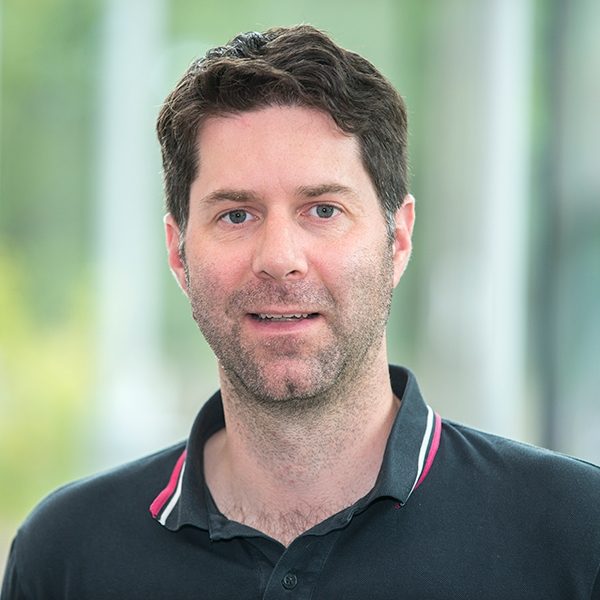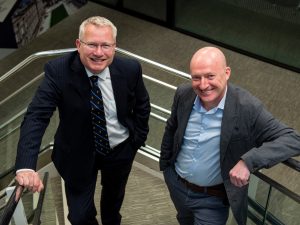
New University of Edinburgh spinout Trogenix has unveiled a novel technology platform that achieves unprecedented precision in targeting aggressive cancers, starting with brain cancer.
Pre-clinical trials have shown its technology can kill glioblastoma cancer cells, leaving nearby healthy cells untouched in a way previous therapies have not managed, whilst also activating the body’s immune system against tumours.
Currently, only 25% of glioblastoma patients survive beyond one year.
Trogenix’ Synthetic Super-Enhancer (SSE) precision viral immunotherapy technology, Odysseus, uses a combination of gene control, machine learning, gene therapy and precision targeting to attack the cancer cells and stimulate the immune system.
Studies demonstrated curative responses with no toxicity and evidence of persistent anti-tumour immunity. Phase 1/2 clinical trials are planned for 2025.

Professor Pollard, of Edinburgh’s Centre for Regenerative Medicine, co-founder and Chief Scientific Officer at Trogenix, said:
Our Odysseus platform represents a significant advancement in cancer treatment. By precisely targeting cancer cell states rather than just cell types, we can achieve unprecedented selectivity while activating the body's own immune system against the tumour. ”
Trogenix emerged from groundbreaking research at the University of Edinburgh’s UK Centre for Mammalian Synthetic Biology and the Institute for Regeneration and Repair, and the Cancer Research UK Scotland Centre. It was co-founded by investor 4BIO Capital, which specialises in creating breakthrough therapeutic companies.
The company has also received investment from IQ Capital, Cancer Research Horizons, the US National Brain Tumor Society, AIN Ventures and Old College Capital (OCC), the University of Edinburgh’s in-house venture investment fund.
Dr Ken Macnamara, a veteran gene therapy executive who held leadership roles at Bayer/AskBio and Synpromics, has been appointed as Chief Executive Officer. He said:
Cancer remains a leading cause of death worldwide, with current therapies often falling short, especially for aggressive solid tumours.
We founded Trogenix to transform cancer treatment from chronic disease management to potentially curative one-time treatments. Our SSE technology represents a significant breakthrough in precision cancer therapy, offering unprecedented selectivity in targeting cancer cells and activating the body's own immune system against tumours, all while leaving healthy cells untouched. "
The company's proprietary SSEs are engineered DNA elements that act as docking stations for transcription factors uniquely expressed in aggressive cancer cells.
This enables highly selective and potent gene control with multiple layers of safety, including direct tumour injection for localised delivery and self-limiting control mechanisms.
Through these SSEs, Trogenix's Odysseus platform delivers a comprehensive attack on cancer through controlled cell killing via targeted expression of cytotoxic payloads, immune modulation to overcome tumour-induced immunosuppression, and a unique ‘Trojan Horse’ approach that reawakens the immune system to provide long-term protection against recurrence.
Beyond glioblastoma, Trogenix is advancing programmes in colorectal cancer liver metastases, hepatocellular carcinoma, and lung squamous cell carcinoma, with the goal of submitting five Investigational New Drug applications in five years, as well as a pipeline of research programmes in regenerative medicine.
Dr Andrea Taylor, CEO of Edinburgh Innovations, the University’s commercialisation service, said:
We are delighted to see Trogenix emerge from stealth mode, following years of research from Professor Pollard’s lab, company formation support from EI, and seed funding and investment from OCC, our own in-house venture investment team.
The technology they have developed has the potential to be truly world-changing. ”
Related links


